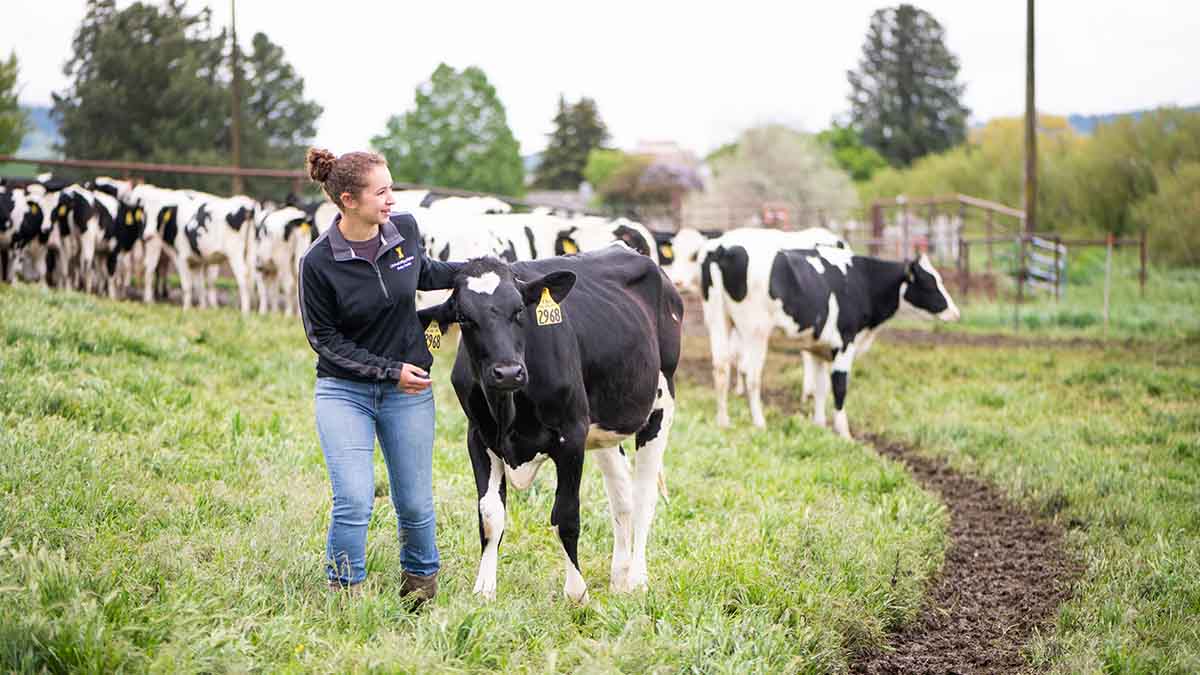
Veterinary medicine is a field full of intriguing facts and surprising details. Ever wondered what makes this profession so unique? Veterinarians don't just care for pets; they also work with farm animals, wildlife, and even exotic species. Did you know that the first veterinary school was established in Lyon, France, in 1761? Or that veterinarians play a crucial role in public health by monitoring zoonotic diseases? From performing surgeries to developing vaccines, their work is vital. Whether you're an aspiring vet or just curious, these 33 facts will give you a deeper appreciation for the world of veterinary medicine.
The Role of Veterinarians
Veterinarians play a crucial role in maintaining the health and well-being of animals. They diagnose, treat, and prevent diseases, ensuring pets and livestock live healthy lives. Here are some intriguing facts about veterinarians and their profession.
-
The word "veterinarian" comes from the Latin word "veterinae," meaning "working animals."
-
The first veterinary school was established in Lyon, France, in 1761.
-
Veterinarians must complete a Doctor of Veterinary Medicine (DVM) degree, which typically takes four years after undergraduate studies.
-
There are over 100,000 veterinarians in the United States alone.
-
Veterinarians can specialize in various fields such as surgery, dermatology, and internal medicine.
-
The American Veterinary Medical Association (AVMA) was founded in 1863 and is one of the oldest veterinary organizations in the world.
Veterinary Medicine Through History
Veterinary medicine has a rich history that dates back thousands of years. Ancient civilizations recognized the importance of animal health and developed early forms of veterinary care.
-
Ancient Egyptians practiced veterinary medicine as early as 3000 BCE.
-
The first known veterinary text, "Hippiatrica," was written in ancient Greece around 500 BCE.
-
In medieval Europe, monks often served as veterinarians, caring for livestock and pets.
-
The first veterinary school in the United States was established in 1852 at the University of Pennsylvania.
-
During World War I, veterinarians played a vital role in caring for war horses and other animals used in combat.
The Science Behind Veterinary Medicine
Veterinary medicine is a complex and ever-evolving field that combines various scientific disciplines to diagnose and treat animal diseases.
-
Veterinary pathologists study animal tissues to diagnose diseases.
-
Veterinary pharmacologists develop and test medications for animals.
-
Veterinary epidemiologists track and study the spread of diseases in animal populations.
-
Veterinary toxicologists study the effects of toxins and poisons on animals.
-
Veterinary nutritionists develop specialized diets to improve animal health.
The Diverse World of Veterinary Careers
Veterinarians can work in a variety of settings, from private clinics to research laboratories. Their skills are in demand across many industries.
-
Some veterinarians work in zoos, caring for exotic animals.
-
Wildlife veterinarians help rehabilitate injured or sick wild animals.
-
Equine veterinarians specialize in the care of horses.
-
Food animal veterinarians work with livestock to ensure the safety of the food supply.
-
Laboratory animal veterinarians oversee the care of animals used in research.
The Impact of Veterinarians on Public Health
Veterinarians play a significant role in protecting public health by preventing the spread of diseases from animals to humans.
-
Veterinarians help control zoonotic diseases, which are diseases that can be transmitted from animals to humans.
-
Rabies is a zoonotic disease that veterinarians help control through vaccination programs.
-
Veterinarians work with public health officials to monitor and control outbreaks of diseases like avian influenza and swine flu.
-
The Centers for Disease Control and Prevention (CDC) employs veterinarians to study and prevent zoonotic diseases.
The Future of Veterinary Medicine
Advancements in technology and science continue to shape the future of veterinary medicine, offering new ways to diagnose and treat animal diseases.
-
Telemedicine is becoming increasingly popular in veterinary care, allowing veterinarians to consult with pet owners remotely.
-
Veterinary surgeons now use advanced imaging techniques like MRI and CT scans to diagnose and treat conditions.
-
Stem cell therapy is being explored as a treatment for various animal diseases.
-
Genetic testing helps veterinarians identify hereditary conditions in pets.
-
Veterinary researchers are developing new vaccines to prevent diseases in animals.
Fun and Surprising Facts About Veterinarians
Veterinarians have fascinating and sometimes surprising aspects to their profession that many people might not know.
-
Veterinarians can treat a wide range of animals, from tiny hamsters to massive elephants.
-
Some veterinarians work in space programs, ensuring the health of animals sent on space missions.
-
Veterinarians often work long hours, including nights and weekends, to provide emergency care for animals.
The Final Word on Veterinary Facts
Veterinary medicine is more than just treating pets. Vets handle everything from surgery to dental care and even behavioral issues. They work with a variety of animals, not just cats and dogs. Veterinary professionals also play a crucial role in public health by controlling zoonotic diseases. The field is constantly evolving with new technologies and treatments. Whether you're a pet owner or just curious, understanding these facts can help you appreciate the hard work and dedication of veterinarians. So next time you visit the vet, you'll know a bit more about what goes on behind the scenes. Remember, vets are not just doctors for animals; they're also scientists, surgeons, and caregivers. Their work ensures our pets live long, healthy lives.
Was this page helpful?
Our commitment to delivering trustworthy and engaging content is at the heart of what we do. Each fact on our site is contributed by real users like you, bringing a wealth of diverse insights and information. To ensure the highest standards of accuracy and reliability, our dedicated editors meticulously review each submission. This process guarantees that the facts we share are not only fascinating but also credible. Trust in our commitment to quality and authenticity as you explore and learn with us.
